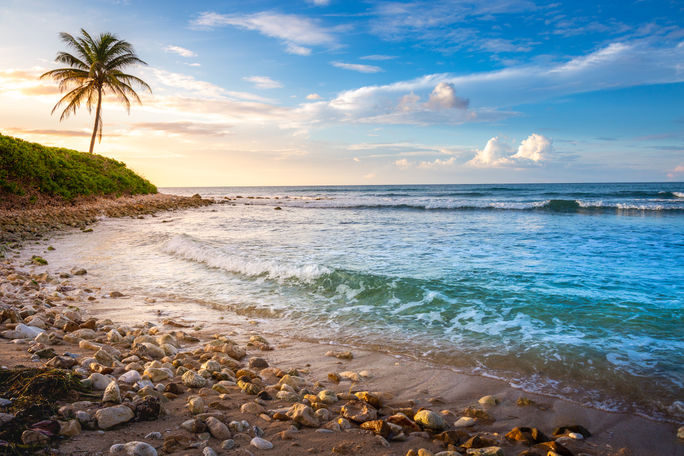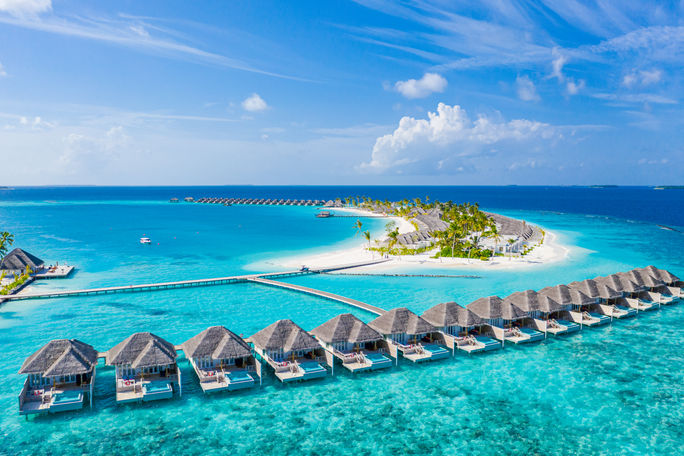


Amid the busy summer travel season, the U.S. State Department issued several travel advisory updates for destinations around the world.
If globetrotting is on your agenda for the coming weeks and months, its a good idea to be aware of the latest guidance.
Here are the most important details from travel advisories issued in July.
Amid Israel’s ongoing war with Gaza, the U.S. Department has issued a nuanced range of advisories for the country as of July 31.
Northern Israel is a Do Not Travel destination, per the State Department. Specifically the government agency advises travelers to avoid going “within 2.5 miles of the Lebanese and Syrian borders due to the rising tensions between Hizballah and Israel.”
For the remainder of the Israel, the State Department has issued a Reconsider Travel advisory due to “terrorism and armed conflict.”
“Terrorist groups, lone-actor terrorists and other violent extremists continue plotting possible attacks in Israel, the West Bank, and Gaza,” says the State Department website. “Terrorists and violent extremists may attack with little or no warning, targeting tourist locations, transportation hubs, markets, shopping malls, and local government facilities. Violence can occur in Israel, the West Bank, and Gaza without warning.”
Similar to Israel, amid the regional conflict taking place, the State Department has issued various levels of travel advisories for the West Bank and Gaza as of July 31
For Gaza, the department has issued a Do Not Travel advisory, citing “terrorism and armed conflict. The West Bank is currently a “Reconsider Travel” destination, also due to terrorism and civil unrest.
As of July 31, travelers should exercise normal precautions when visiting Taiwan, according the State Department’s updated advisory.
While Taiwan is known for its vibrant democracy, per the State Department notes on the destination, there is the potential for spontaneous and planned demonstrations. The government agency suggests monitoring media coverage of local and regional events to avoid public demonstrations.
Additionally, May through November is typhoon season in Taiwan. Taiwan’s Central Weather Bureau issues typhoon warnings an average of five times a year. Of that figure, about three to four normally make landfall.

Montego Bay, Jamaica. (Photo Credit: Aide / Adobe Stock)
Updated as of July 25, the State Department is currently advising U.S. citizens to reconsider travel to Jamaica due to crime.
“Violent crime occurs throughout Jamaica,” says the State Department website, adding that the homicide rate reported by the government of Jamaica is among the highest in the Western Hemisphere. Armed robberies and sexual assaults are common.
Tourist areas generally see lower rates of violent crime than other parts of the country, the advisory adds.
However, the U.S. Embassy routinely receives reports of sexual assaults, including reports from U.S. citizen tourists at resorts, per the State Department.
U.S. citizens also report “slow or unsatisfactory response to serious criminal incidents,” says the advisory. “When arrests are made, cases are infrequently prosecuted to a final verdict and sentence.”
Also worth noting: U.S. citizens should not expect the same level of health care available in Jamaica as is available in the United States, says the State Department.
“This includes generally lower levels of emergency service response times or routine care for illness or injury,” according to the latest advisory.
The State Department also strongly urges travelers bound for Jamaica to obtain traveler’s insurance, including medical evacuation insurance, before traveling.
Surprising as it may seem that the perpetually happy country of Sweden would be under an advisory, that is indeed the case. Though it’s merely a Level 2 advisory, which means exercise caution.
As of the country’s July 24 advisory update, the State Department says: “Terrorist groups continue plotting possible attacks in Sweden. Terrorists may attack with little or no warning, targeting tourist locations, transportation hubs, markets/shopping malls, local government facilities, hotels, clubs, restaurants, places of worship, parks, major sporting and cultural events, educational institutions, airports, and other public areas.”
Those traveling to Sweden are advised to “Be aware of your surroundings when traveling to tourist locations and crowded public venues.”
Travelers planning to visit the Southeast Asian nation of Malaysia are advised to exercise normal precaution. Some areas of the country have increased risk, according to the State Department.
In particular, travelers should exercise increased caution in the eastern area of Sabah State due to kidnappings. This region of Malaysia is actually under a Level 2: Exercise Increased Caution advisory right now.
“There is a threat of kidnappings-for-ransom from both terrorist and criminal groups,” says the State Department. “These groups may attack with little to no warning, targeting coastal resorts, island resorts, and boats ferrying tourists to resort islands.”
The U.S. government has limited ability to provide emergency services to U.S. citizens in eastern Sabah as U.S. government employees must obtain special authorization to travel to parts of eastern Sabah, the advisory explains.
Increased crime and terrorism throughout India are among the reasons cited by the State Department for its Level 2 advisory for India.
Some areas have increased risk, as of the July 23 advisory update. Specifically, the State Department says do not travel to:
The State Department also advisors reconsidering travel to the northeastern states due to terrorism and violence.

An island resort in The Maldives. (Photo Credit: Adobe Stock/icemanphotos)
The stunning tropical paradise of Maldives is a Level 2 destination as of the State Department’s July 11 update. That means exercise increased caution in the destination. The reason for this advisory level is the potential for terrorism.
“Terrorist groups may conduct attacks with little or no warning, targeting tourist locations, transportation hubs, markets/shopping malls, and local government facilities,” says the State Department. “Attacks may occur on remote islands which could lengthen the response time of authorities.”
Updated as of July 31, the State Department advises U.S. citizens to avoid Lebanon due to “rising tensions between Hizballah and Israel.”
“If you are in Lebanon, be prepared to shelter in place should the situation deteriorate,” says the latest update. “The U.S. Embassy strongly encourages U.S. citizens who are already in Southern Lebanon, near the borders with Syria, and/or in refugee settlements to depart.”
The issues currently impacting Lebanon include: “crime, terrorism, civil unrest, kidnapping, unexploded landmines, and the risk of armed conflict. Some areas, especially near the borders, have increased risk.”
Amid civil unrest, crime and terrorism, the State Department has issued a Do Not Travel advisory for Bangladesh. The department has also authorized the voluntary departure of non-emergency U.S. government employees and family members in the country.
“Travelers should not travel to Bangladesh due to ongoing civil unrest in Dhaka,” says the July 20 advisory.
“Demonstrations and violent clashes have been reported throughout the city of Dhaka, its neighboring areas, and throughout Bangladesh.”
The Government of Bangladesh has declared a curfew throughout Bangladesh, ordering everyone to stay indoors, the advisory adds.
“The Bangladeshi Army has been deployed throughout the country to reinforce the police,” continues the advisory. “Telecommunications have been interrupted in Dhaka and across the country. Due to the security situation, there may be a delay in provision of routine consular services.”
Travelers should also be aware of petty crimes such as pickpocketing in crowded areas.
“Crimes such as muggings, burglaries, assaults, and illegal drug trafficking constitute the majority of criminal activity in Bangladesh’s major cities, but there are no indications foreigners are being targeted because of their nationality. These crimes tend to be situational, based on time and location,” per the advisory.
For the latest travel news, updates and deals, subscribe to the daily TravelPulse newsletter.